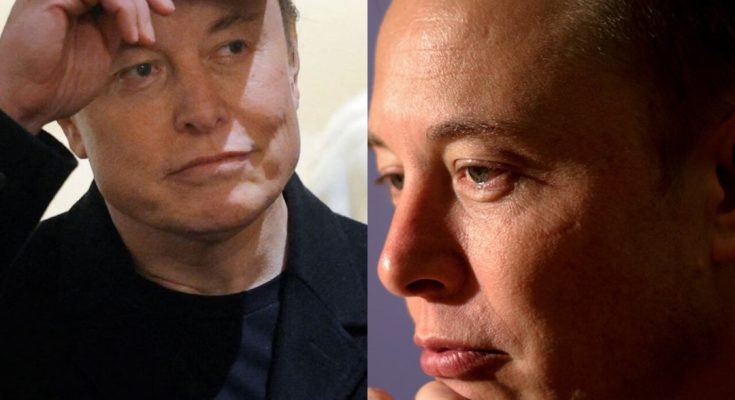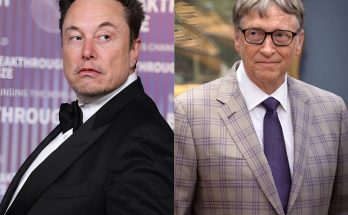In a news cycle driven more by speculation than fact, Elon Musk’s forthcoming departure from the Department of Government Efficiency (DOGE) has become the latest lightning rod for partisan punditry and fevered conjecture. From breathless headlines on social media to sweeping assertions about the dissolution of the Trump-Musk alliance, the left-leaning media narrative has focused on conflict — but a deeper look reveals a much more mundane, albeit important, bureaucratic reality.According to multiple sources close to the White House, Musk’s exit was always built into the architecture of his appointment. His tenure as a Special Government Employee (SGE) was limited to 130 days under federal law, and his departure — slated for May 30 — marks the completion of that term.So why the firestorm?The controversy began in earnest after Politico’s Capitol Bureau Chief, Rachel Bade, claimed an exclusive scoop on Musk’s imminent departure. In a viral post on X (formerly Twitter), Bade implied that the move signaled a rift between President Donald Trump and Musk, who has served as a high-profile advisor and de facto czar at DOGE since Trump’s inauguration.“The news represents a shift in the Trump-Musk relationship,” Bade posted. “White House officials & allies were predicting Musk was ‘here to stay’ and that Trump would find a way to blow past the 130-day time limit.”The post triggered an avalanche of reactions from across the political spectrum — and drew sharp rebuttals from the administration. White House Press Secretary Karoline Leavitt dismissed the “scoop” outright, calling it “garbage” and reiterating that both Trump and Musk had long communicated the temporary nature of Musk’s role.“Elon Musk and President Trump have both publicly stated that Elon will depart from public service as a special government employee when his incredible work at DOGE is complete,” Leavitt wrote.Far from an abrupt or dramatic departure, Musk’s 130-day term was set in stone the moment he was sworn in as an SGE. These positions are tightly regulated under the Federal Advisory Committee Act and related statutes. SGEs are designed to bring in outside expertise for short-term government service — not to create new centers of power or circumvent established bureaucratic processes.In Musk’s case, his mission was clear: slash inefficiency, root out waste, and reduce the national deficit by a projected $1 trillion. And by many accounts — including his own — he has succeeded in moving the needle.“I think we will have accomplished most of the work required to reduce the deficit by $1 trillion within that time frame,” Musk told Fox News anchor Bret Baier last week.The Tesla and SpaceX CEO has overseen sweeping cuts to federal programs, from the U.S. Agency for International Development to the Department of Education and the Social Security Administration. These reductions, while controversial, were in line with Trump’s broader goals of downsizing government.As Musk put it during his interview with Baier: “I mean, Tesla’s a peaceful company that has made great cars, great products — that’s all it’s done. Now we’re trying to do the same for government.”Beyond budget cuts and bureaucratic shakeups, Musk’s role at DOGE has also included infusing government operations with Silicon Valley-style accountability. One of his more notable mandates required every federal employee to submit weekly progress reports, complete with five bullet points detailing their output.While this initiative was short-lived — after triggering pushback from unions and HR officials — it underscored Musk’s disruptive approach to public administration.Trump later recharacterized DOGE as “tech support” rather than a managerial entity, a move seen as both a political recalibration and a nod to the backlash Musk’s data-driven ethos had stirred.Still, Musk’s influence extended beyond management gimmicks. In March, the White House acknowledged that Musk’s cyber expertise had played a role in an internal investigation into how Atlantic editor Jeffrey Goldberg had gained access to a confidential Signal group chat discussing U.S. military options in Yemen.It was one of several moments that blurred the line between tech, politics, and national security — and raised legitimate questions about whether a private citizen with active business interests, including in defense contracting and space exploration, should have access to such sensitive materials.Critics have argued that Musk’s continued proximity to power poses serious ethical questions. With Tesla and SpaceX operating under substantial federal contracts, watchdogs fear that even the appearance of impropriety could erode public trust.While there is no evidence Musk has leveraged his position for corporate gain, the optics of a sitting advisor to the president simultaneously running companies that depend on government partnerships — from NASA missions to electric vehicle tax credits — are, at the very least, politically fraught.Democrats in Congress have quietly circulated memos suggesting that Musk’s departure from DOGE may in fact be a preemptive measure to head off inquiries into possible violations of federal conflict of interest laws. These murmurs have yet to materialize into formal investigations, but the atmosphere of suspicion has added fuel to the media narrative.“DOGE was always a ticking clock,” a former White House ethics official told The Post on condition of anonymity. “But that doesn’t mean we shouldn’t scrutinize what happened during those 130 days. If anything, the fact that it was temporary makes oversight even more important.”Despite the media frenzy, there is no indication that Trump views Musk’s departure as anything but routine. “At some point, he’s going to be going back … I’ll keep him as long as I can keep him, he’s a very talented guy,” Trump told reporters in the Oval Office on Monday. “I love very smart people, and he’s very smart, and he’s done a good job.”Indeed, Trump has frequently cited Musk as a model of private-sector efficiency, someone who “gets things done” without getting bogged down in bureaucracy. For the President, Musk’s role at DOGE seems less about politics than performance.Even Musk himself appears eager to return to private life. He told investors as early as February that he expected to spend no more than four months in Washington. And months before even that, he hinted that the “final step of DOGE is to delete itself.”The question remains: was Musk’s departure triggered by personal conflicts, policy disputes, or simply a regulatory clock running out?The evidence overwhelmingly supports the latter. While critics will continue to question the ethics of his dual roles and speculate about his influence in high-level decisions, the official reason for his departure — the expiration of his 130-day term — remains both legally sound and publicly acknowledged.In an era where political theater often overshadows policy substance, Musk’s time in government may well be remembered less for its conclusion and more for its disruption. Whether that disruption was good, bad, or necessary will likely be debated for years to come.One thing is clear: Elon Musk came to Washington with a mission, completed it on time, and — at least for now — is heading back to the boardrooms and launchpads where he feels most at home.
Elon Musk is preparing to step away from DOGE — but insiders say there’s more to the story than just a ticking clock.



